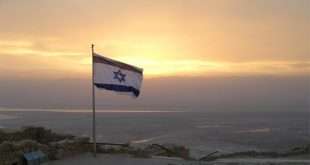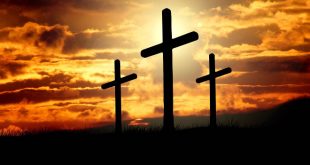 Jews worldwide will commemorate the holiday, performing traditions and having a Passover seder. Jews in Israel celebrate the holiday for seven days, while Jews in the Diaspora for 8. Passover, known in Hebrew as Pesach, begins on the 15th of the Jewish month Nissan until the 22nd.
Jews worldwide will commemorate the holiday, performing traditions and having a Passover seder. Jews in Israel celebrate the holiday for seven days, while Jews in the Diaspora for 8. Passover, known in Hebrew as Pesach, begins on the 15th of the Jewish month Nissan until the 22nd.
God chose Moses to lead the Israelites from captivity and decades of slavery to the Promised Land. When Pharaoh came with God’s demand, the Pharaoh refused, marking the beginning of the ten plagues.
The plagues came across Egypt, however, the Pharaoh refused to let the Chosen people go. The first of water into blood, frogs, lice, flies, deceased livestock, boils, thunder and hail, locusts, darkness for three days, and the final plague of death of the firstborn of every family, including the Pharaohs.
God informed Moses to have every Israelite home in Egypt to mark their door with lamb’s blood, hence the holiday’s name of Pesach, which means “to pass over” as the Lord spared his People’s firstborn.
Jewish culture centers Passover on remembering the Exodus from Egypt, the first night of the holiday marked with a ritual meal called the Seder (“order”), a meal of 14 parts and the traditional text called the Haggadah.
The Haggadah (“telling”) is filled with prayers, songs and psalms to be read over the Seder. The Haggadah additionally has many texts from the midrash, commentaries by rabbis on the Torah.
One of the major Jewish costumes of the Passover is the removal of all “chammetz” (leavened bread) from Jewish homes for the entirety of the Passover holiday. This tradition commemorates the Israelites departure from Egypt in a hurry, their bread not able to rise.
During Passover, Jews eat matzah, unleavened bread, through out the entire 7 days, matzah remembered as Lechem Oni, (“The bread of Affliction”). Leavened bread is traditionally burned the day before the holiday begins, known as the “Biyur Chamtez”, however many Jewish communities today sell their bread to non-Jewish neighbors or friends.
The Seder meal consists of 14 traditions, with various forms of observance by Jewish communities worldwide. The meal ends with the traditional blessing that has been repeated since the Jews exile from the Israel, “Next year in Jerusalem”, a prayer that finally come to past with the establishment of the Jewish homeland Israel.
Two thousands years ago on Passover eve, Jesus was crucified and became the ultimate Passover as it is written: “For even Christ our passover is sacrificed for us.”—1 Corinthians 5:7
May we all pray for the understanding of the people of Israel as for who their true Passover is, so that they will experience their personal exodus from the land of bondage to sin into the promises of God: “And so all Israel shall be saved: as it is written, There shall come out of Zion the Deliverer, and shall turn away ungodliness from Jacob.”-Romans 11:26
 Amir Tsarfati is the founder and president of Behold Israel, a news site to correct the scarcity in trustworthy reportage on issues and events impacting Israel, and to resolve the uncertainty about who or what to believe.
Amir Tsarfati is the founder and president of Behold Israel, a news site to correct the scarcity in trustworthy reportage on issues and events impacting Israel, and to resolve the uncertainty about who or what to believe.
Photo credit: paurian (Creative Commons)
 CURE News and Clergy Blog News and Commentary for Christians
CURE News and Clergy Blog News and Commentary for Christians


